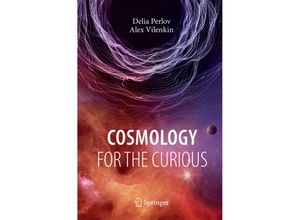This book is a gentle introduction for all those wishing to learn about modern views of the
cosmos. Our universe originated in a great explosion - the big bang. For nearly a century
cosmologists have studied the aftermath of this explosion: how the universe expanded and cooled
down and how galaxies were gradually assembled by gravity. The nature of the bang itself has
come into focus only relatively recently. It is the subject of the theory of cosmic inflation
which was developed in the last few decades and has led to a radically new global view of the
universe.Students and other interested readers will find here a non-technical but conceptually
rigorous account of modern cosmological ideas - describing what we know and how we know it.
One of the book's central themes is the scientific quest to find answers to the ultimate cosmic
questions: Is the universe finite or infinite? Has it existed forever? If not when and how did
it come into being? Will it ever end? The book is based on the undergraduate course taught by
Alex Vilenkin at Tufts University. It assumes no prior knowledge of physics or mathematics
beyond elementary high school math. The necessary physics background is introduced as it is
required. Each chapter includes a list of questions and exercises of varying degree of
difficulty.

